Spanish Politics and Society
advertisement
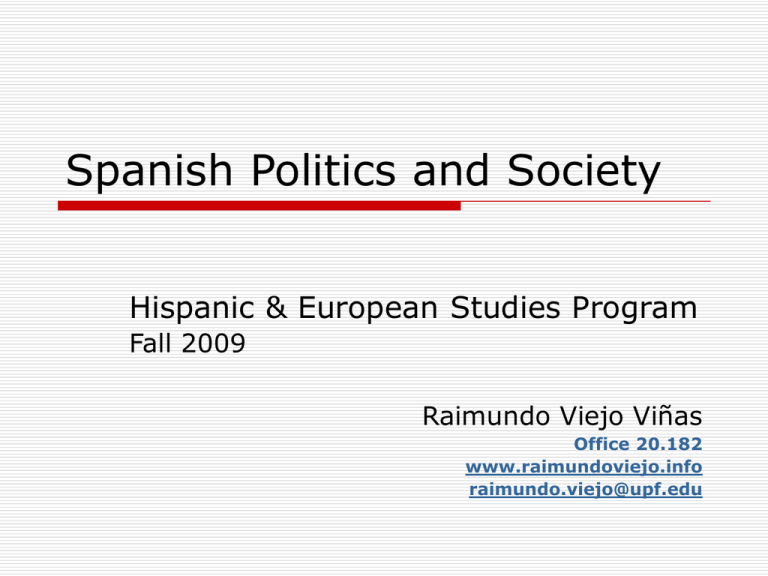
Spanish Politics and Society Hispanic & European Studies Program Fall 2009 Raimundo Viejo Viñas Office 20.182 www.raimundoviejo.info raimundo.viejo@upf.edu Democratization Theoretical approaches Democratization What is Democracy? Democracy is a particular type of political regime Democracy is not a state of things, something fixed Democracy is a dynamic way of taking decisions that entails three different dimensions: Participation Deliberation Decision Democratization Democratization is the becoming Democracy of a political regime. It is an endless, constituent process. Democracy can advance or recede, but can not remain static. One hundred years ago there were only a few democracies in the world. But today Democracy is considered the best (or the “least bad”) form of government. Even autocracies present themselves as “democracies” (Cuba, for example, is defined as a “popular democracy”) Democratization There are three basic ways to explain democratization: Modernization or development theory Institutionalist approaches “Contentious politics” research program Democratization According to Modernization theory, democratization is the result of a certain degree of socioeconomic development. Some exceptions challenge Modernization theory India, for example, is an poor but democratic country Saudi Arabia is a rich but un democratic country We cannot expect democratization from a certain degree of socioeconomic development. Modernization can help democratization, but it is not enough. Democratization In opposition to Modernization Theory Institutionalist Approaches focus on political actors, most notably in the political elites and their pacts Institutionalist Approaches, however, tend to forget the role of the masses in democratization processes: The breakdown of German Democratic Republic, for example, was not the result of an elite pact, but the combination of mass demonstrations and mass escape Democratization “Contentious politics” research program see democratization as a result of political conflict and mass dynamics, not as a merely elite pact Elitist democratization can be easily reversed. Democratic consolidation need mass acceptance of democratic rule According to Charles Tilly: Democracy requires a “broad, equal, protected and mutually binding consultation”. There is no Democracy without people’s consent. Democratization Democratization entails three different processes: Liberalization Transition Consolidation Democratization liberalization refers to a relaxation of previous government restrictions, usually in areas of social or economic policy. Liberalization of autocratic regimes may precede democratization (as in the case of Spain) or not (as in the case of the Prague Spring of 1968) Transition is a change in a political regime that adopts a new, substantially different form of government Consolidation is the process by which a new democracy matures, in a way that means it is unlikely to revert into an autocratic regime. Democratization Transition to democracy entails two different processes: Instauration Institutionalization Democratization Instauration is the act of starting something for the first time. The approval or the sanction of a Constitution can be an example for the instauration of a political regime Institutionalization is the creation or organisation of governmental institutions or particular bodies responsible for overseeing or implementing policy
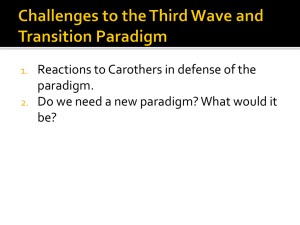
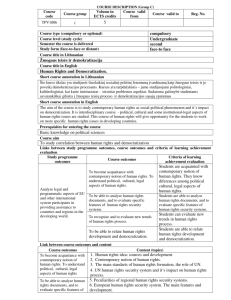
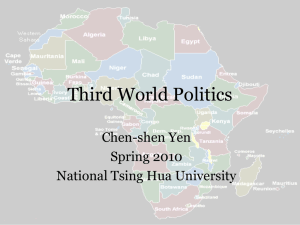
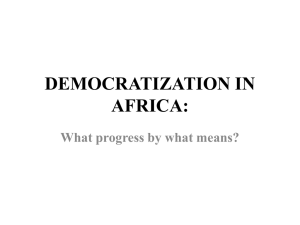
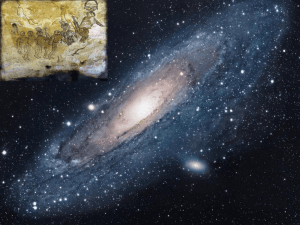
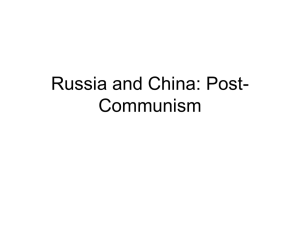
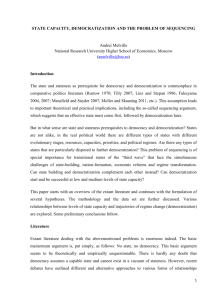
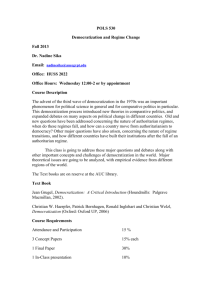
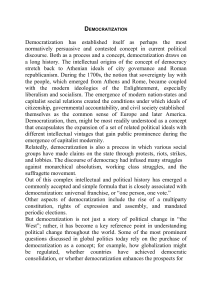


![“The Progress of invention is really a threat [to monarchy]. Whenever](http://s2.studylib.net/store/data/005328855_1-dcf2226918c1b7efad661cb19485529d-300x300.png)